 image from NYTimes
image from NYTimesMozgala and Rogoff doing body work to warm up for rehersal
Gregg Mozgala, the subject of the article, is an actor in New York that has struggled with cerebral palsy for most of his life. Though he went through over 12 years of physical therapy, the result of such thorough going physical work was to learn how to cope with his struggle to balance and walk upright, rather than to more deeply transform the way his body moved. During a stage performance in which he played Romeo to Shakespeare's Juliet, Tamar Rogoff, a choreographer, saw him, and, intrigued by his gait and presence, decided she wanted to design a dance piece for him. Approaching him with the idea, they began working together. Quickly though, Rogoff began encountering the physical balance limitations that Mozgala faced that would also seem to prove a limit to her dance design. Rather than give up, she redirected their work, moving from planning a short piece, to instead doing physically tranformative stretching and strengthening work with him before each practice and rehersal. As Mozgala describes it, the work has resulted in him slowly learning each muscle and tendon of his body. Rogoff has literally taken him through a different aspect of his musculature each time they work together so that on one day he recalls "meeting his achilles tendon", for example. The outcome, at least partially, of such work has been that Mozgala walks now with a more 'normal' gait, such that people can't tell straight off that he has a physical disability, though it was glaringly obvious only 8 months ago, before he and Rogoff started working together. The dance piece too has been utterly transformed. Though originally it was imagined as a ten-minute piece, it has now become a complex hour and a half long performance, in multiple acts, with other dancers too. Further, Mozgala describes in the article how the work they've done has utterly changed his relationship to his body, and, as a result too, his way of being in the world.
There is such richness for learning in this story. For one, Rogoff said she intentionally did not learn about cerebral palsy before starting to work with Mozgala because she did not want to know what his physical limitations were. Instead, she wanted to work with him directly to discover together what he could do. Mozgala, too, it turns out, didn't simply go along with everything he's been told about what his body can and cannot do because of his neurological condition. Instead, he gave himself over to the work Rogoff offered to him. Together they embarked on a co-creative discovery of his possibilities. Formal medicine, in this case, didn't know what Mozgala's body could do. Traditional wisdom on cerebral palsy has the individual's ability to control their physical movements as very limited. Without very active pursuit of a life lived otherwise, this is probably a reasonable expectation for many patients. But it seems Mozgala and Rogoff's example illustrates how individualized effective physical care and transformation needs to be, and that when dealt with in such a particularized manner, no one knows what is possible for that individual body. Instead, such possibility has to be discovered by us being commited to pursue and live the discovery. Mozgala and Rogoff too have been able to achieve the incredible fruition of their work through the struggle of overcoming the limitations associated with Mozgala's physical disorder. His blessings have come through the constraints of his condition, and the struggle of their work with it.
Camus describes one way of thinking about this approach-- he shows us how it is in genuinely accepting our limitations, without accepting the resolution implied by them that we find our potential, our power, and our freedom. In Mozgala and Rogoff's case, it would seem that in truly embracing the limitations of his physical body they discovered how to work with those limits directly, and so too to discover the ability to surpass the otherwise predetermined, given limits associated with cerebral palsy. Had they, either, on the one hand, assumed that Mozgala's physical limits simply predetermined an inability to dance in the way Rogoff would want someone to, or, on the other hand, tried to deny that cerebral palsy does cause limitations of a certain sort in his physical possibilities, then they could not have together found the success of physical movement they have now found in Mozgala. Cerebral palsy has imposed limits on him that other dancers do not face. Part of the miracle of their story is found because of such limits. It means too, that he has to more actively practice a very particular kind of physical training and care in order to now move in the ways that he is able to. Practice and rehersals have meant a continual discovery of the limits of his balance, and ability to move with the other dancers. But, cerebral palsy has not given him an absolute, or predetermined limit either. He has far surpassed what any medical doctor had told him he'd be able to do. Further, he has now made possible a meaningful expression of this transformation through the performance piece that Rogoff has designed as a result of their work together.
It seems like any of us can apply such a lesson in our daily lives, even if in less profoundly obvious ways. The ten year old I live with, for example, has taken up drum lessons. It's hard. There is a lot for her to learn, and she is only just beginning to get control over when her arms beat the drum, and how in relation to the rhythm patterns and timing she is trying to learn. Still, in accepting that an instrument is something that must be learned, practiced, and improved on over time she can improve those skills and find greater freedom of expression in her relation with the instrument. She has already started taking up spontaneous play of the drums that is coarse in some ways, and yet reflects a learned understanding of playing with rhythms and sound at the same time. When I've asked her about how her lessons are going she says that it's hard, and then she'll quickly starts telling me about how she can tell she's so much better than when she first started. She's had to accept that she doesn't know how to play drums yet, and that to learn them she'll have to keep studying, and practicing in order to have the possibility to get better. In accepting this real limitation, but refusing to see it as the idea that not knowing how to play means she can't play, she is surpassing the limits she now has, and learning how to actually play the drums.

I think too there are simpler, daily versions of such engagement. Camus, I take it, wants us to live a life passionately, and actively, refusing to simply fall into habit, or to put off things now for the sake of something later. I think too though that Camus can be misread as negating the idea of planning, or as saying that we can simply do whatever we want without regard for others, or for later. He doesn't say that though. We make the meaning of our lives. What we do belongs to us. That is why we must care both for now and for later. That means the moment we are living out right this minute is a crucial moment. It is the moment in which everything is happening, even as we also must live as if we will keep having such moments. It can be a difficult shift sometimes to get more clear on how to live our life more fully, balancing out the richness of right now, with the need to plan for our futures. We can too, I think, get caught up in thinking the way to live a fuller life is by having bigger plans. It seems like Mozgala and Rogoff offer us another sort of lesson though.
In order to plan a dance performance--a long term plan--Mozgala and Rogoff had to dial things down to a simple engagement of taking it moment by moment, a mere portion of musculature at a time. Today, for the next twenty minutes, for example, we are going to simply stretch, strengthen, move, and pull Mozgala's achilles tendon on his right leg. From what I can tell in the article, they really did take time to simply do that kind of work. In that twenty minutes, then, there they were fully engaging with one simple portion of Mozgala's body, in a very direct, passionately committed way. The work was being done very much for the sake of their long term goal to facilitiate a dance performance. But the success of that could only occur if they took up those twenty minutes as if they were being done simply for the sake of Mozgala 'getting to know' his achilles tendon. And in a sense, that really was all those twenty minutes were for. As a result, Mozgala has a more passionately lived understanding of his entire body, from his also having a more thorough going relationship with smaller aspects of his body too.
It seems, then, like we can think of this kind of training that dancer and choreographer took up as a model for our daily lives. In this moment, perhaps, for example, we need to go to the grocery store for food and supplies. We can do that for the sake of our long term plans of having food to eat later, while also engaging with the shopping process as if we are doing it only for the sake of the moment itself-- smelling the grapefruit as we pick them out (their skins really are so pungent and ripe), embracing the colors of the other produce as we walk by the area (they are so delightfully varied, and vibrant), marvelling at how many kinds of instant mac and cheese cover the shelves (it's disturbing, and yet the stack and flow of the box designs is impressive, and graphic). Or, as we bake and cook for various holidays, we can do so for the sake of the meal we'll celebrate after we're done, while we also gorge ourselves on the smell of the vanilla, the spiced color of the pecans, the visibly fatty goodness of an avocado we're cutting up, or of the meat we'll coat and roast. The whole process, then, becomes a feast and delight, a life richly lived, not just the final outcome of the meal we will eat.
When I teach Introduction to Ethics my students struggle with the technicality of reading material they're simply not used to reading. I tell them that if they do the work to practice reading the material anyway, to read it with commitment, continually returning to the page every time they catch their attention wandering off, then by the end of the semester they'll have developed a kind of endurance through which reading will be much easier. They'll have stronger concentration, and as a result a greater ability to appreciate what they are reading too. I think there is something like this in our practicing a life fully lived. Passionate engagement can be exhausting at first, or, we can slip back to our habits of not paying attention, or, we can feel unprepared to juggle the co-commitment of life right now and life for the future. Yes, these things are hard. They're also where we gain those blessings from our struggle. The more thoroughly we are able to practice such a life, the more richly we can receive from our lives. Every time we feel our attention wander, or our strength for such commitment wane, we can simply bring our attention back to the page, so to speak. By the end of our metaphorical semester, we'll all have much richer, more fulfilling concentration.


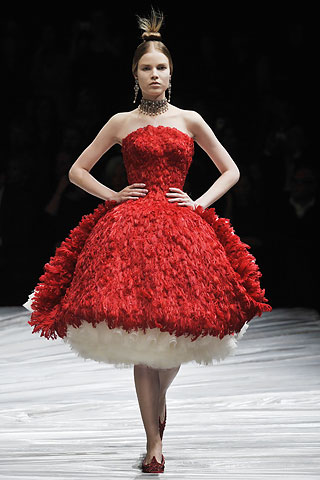

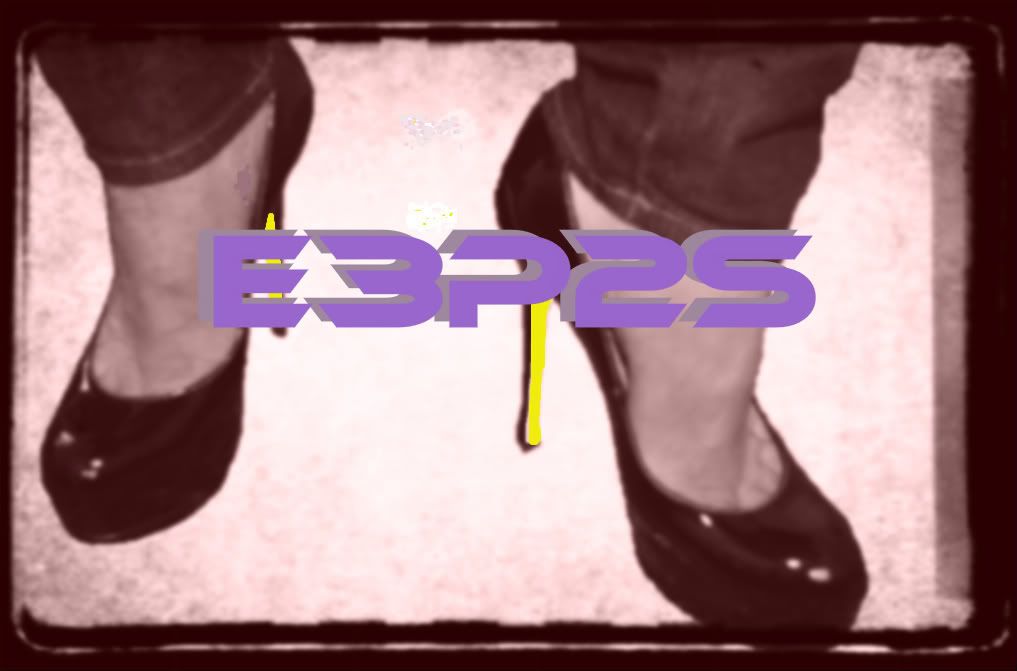
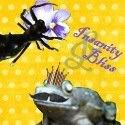
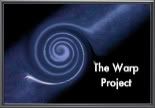


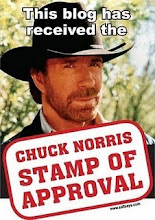



Love to read your posts Elaine!
ReplyDeleteI had a close Deaf friend who was severely crippled by his CP; he was fiercely independent and a brilliant writer. Back in the day he was also a body builder, and it was amazing to see that though he struggled immensely with tying his shoes, he was able to compete in body building competitions with an impressive physique.
My life breakthrough comes in finally not living a life filled with fear. Allowing an incident to define me very early in life led to a blanket of fear that was so encompassing and comfortable that I barely moved. Only recently have I started to grasp that freedom and comfort in the things I know to be true, and I have let go in order to engage, but, other times, I just have to "do it scared", and while it may not be a full experience, it is an experience nonetheless.
Since I have always been certain from deep within that this life is not the end, and I am quite satisfied with what I have experienced and accepted to be true, I should in every way experience this life without fear and anxiety. Yes, it IS a daily struggle, but I know there's no victory in my own strength, and in those minute-to-minute moments when I have that joy and ability to spread my wings, I experience life, and the blessings, like I should and I thank God for it.
Here's to the lingering and pungent smell of grapefruit on our hands, and throwing off the blanket of fear like the old, dirty rag it is!
kim, your commenting means a lot to me. you consistently have so much insight and care to offer. thank you.
ReplyDeletethere is a lot i am thinking about here and want to work into a more robust post/commentary later--the need to acknowledge the very real limitations of disability and/or fear; the need to have compassion for those (me) that live in such limitations (fear, rather than obvious disability for me); the idea that being 'just like everybody else', ie. 'normal' isn't the moral of my brining up this article here. and also what it even means to have a 'fuller' or 'complete' experience as you allude to here. from one perspective, aren't we always doing this?
anyway, so, all of this just to say, thank you for commenting. and also, there is a lot to think about here in your commentary, and what it points to that i think about but haven't explicitly written about yet with my post. in the meantime though i want to say how very much i appreciate your comment that "there's no victory in my own strength." there is something so crucially brilliant and insightful in saying that. that we don't simply have control in the way we can often misunderstand ourselves to have. we can't assume the life we've been given to be of our own making. god has given us our gifts, whether we want to take up 'god' here in the way my christian heart leads me to mean, or in the sense even of something like a combination between genetic randomization from our parents plus circumstances would imply. we have both done so much and so little to create our own lives. this seems part too another example of accepting the limits and living them fully too. that thanking god for what we have been given means knowing that we must embrace what we have been given and accept that even if we have not made or chosen all of it, it belongs to us. thank you again, kim. i'm so glad we've reconnected in this way.
I feel the same Elaine!
ReplyDeleteI love coming here and reading your posts. It always takes me a few days to read them over before I comment, because I want to thoughtfully engage in the dialogue, and I will only comment if I feel I have anything to contribute, because your posts are refreshingly deep and heart-felt, and truly written with an intent to mean something, unlike so many I read that are simply rants, or topic dropping for the sake of "relevancy", you know what I mean? I come here to stretch my brain, though I can't make it around the track as many times without having to take a breath more than others! :) Your fashion posts are so fun too, an area I like learning about and reading your take on! I am so glad you enjoy posts of mine as well, seeing as I tend to post silly random weirdness that gives me strange visuals to laugh at.
I look forward to reading the posts you are working on, regarding limitations in disabilities, whether physical or mental, and what/who has control in our lives.
Hugs to you!